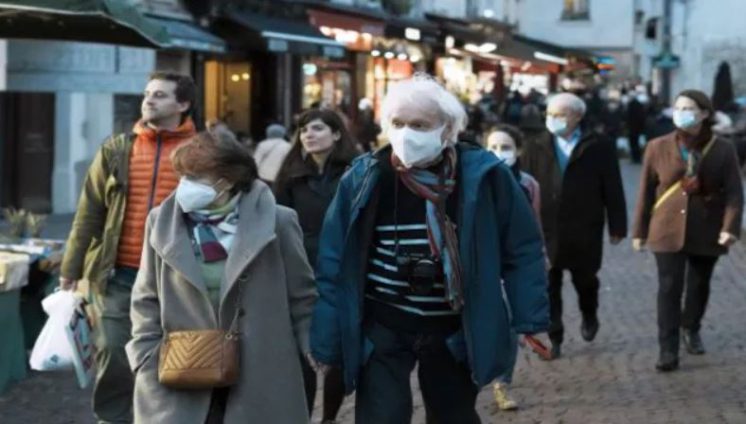Even as the world battles the uptick in COVID-19 cases owing to the Omicron variant, scientists in France have found another variant.
The discovery of the variant, dubbed B.1.640.2, was announced in a paper posted on medRxiv.
Called IHU, as of now, the strain was discovered by academics based at the IHU Mediterranee Infection on 10 December.
Un nouveau variant COVID-19 à été détecté à l'IHU Méditerranée Infection issu de patients de Forcalquier. Il a été baptisé variant IHU et déposé sur GISAID sous le nom de B.1.640.2. pic.twitter.com/Rh3klIxy0w
— IHU Méditerranée Infection (@IHU_Marseille) December 9, 2021
Here’s what we know so far of this new COVID-19 variant:
• Researchers say that it contains 46 mutations — even more than Omicron — which makes it more resistant to vaccines and infectious.
• Some 12 cases have been spotted so far near Marseille, with the first linked to travel to the African country Cameroon.
• Tests show the strain carries the N501Y mutation — first seen on the Alpha variant — that experts believe can make it more transmissible
• According to the scientists, it also carries the E484K mutation, which could mean that the IHU variant will be more resistant to vaccines.
• It is yet to be spotted in other countries or labelled a variant under investigation by the World Health Organization.
Omicron dominant variant
Currently, Omicron is the dominant coronavirus variant in France, joining other European countries like the United Kingdom and Portugal with surging case numbers over the past few days.
France's public health agency had recently said that "62.4 percent of tests showed a profile compatible with the Omicron variant".
The Omicron variant of coronavirus has stoked average daily confirmed cases to more than 160,000 per day over the past week, with peaks above 200,000.
“The tidal wave has indeed arrived, it’s enormous, but we will not give in to panic,” Health Minister Olivier Veran was quoted as telling Parliament.
In an attempt to battle this surge, French MPs have proposed legislation that would require most people to be vaccinated against COVID-19 to enter public spaces such as bars, restaurants and long-distance public transport.
It is expected to come into force on 15 January after passing through the upper house Senate.
News agency AFP reported that the bill’s headline measure is aimed at getting France’s remaining five million unvaccinated people over 12 to accept a shot.
At present a health pass is required to access numerous everyday venues including bars, cafés, restaurants, cinemas, theatres, gyms, leisure centres and long distance train travel – but a recent negative test is accepted for the health pass.
The bill aims to replace the health pass with a vaccine pass – which would only allow people who are fully vaccinated to gain access to those venues.
Latest Stories
-
IMF board to disburse $360m to Ghana in December after third review
55 seconds -
Former Bono Regional NPP organiser donates 13 motorbikes to 12 constituencies
7 mins -
Securities industry: Assets under management estimated at GH¢81.7bn in quarter 3, 2024
12 mins -
Gold Fields Ghana Foundation challenges graduates to maximise benefits of community apprenticeship programme
2 hours -
GBC accuses Deputy Information Minister Sylvester Tetteh of demolishing its bungalow illegally
2 hours -
Boost for education as government commissions 80 projects
2 hours -
NAPO commissions library to honour Atta-Mills’ memory
2 hours -
OmniBSIC Bank champions health and wellness with thriving community walk
2 hours -
Kora Wearables unveils Neo: The Ultimate Smartwatch for Ghana’s tech-savvy and health-conscious users
2 hours -
NDC supports Dampare’s ‘no guns at polling stations’ directive
2 hours -
Police officer interdicted after video of assault goes viral
3 hours -
KNUST’s Prof. Reginald Annan named first African recipient of World Cancer Research Fund
3 hours -
George Twum-Barimah-Adu pledges inclusive cabinet with Minority and Majority leaders
4 hours -
Labourer jailed 5 years for inflicting cutlass wounds on businessman
4 hours -
Parliament urged to fast-track passage of Road Traffic Amendment Bill
4 hours

